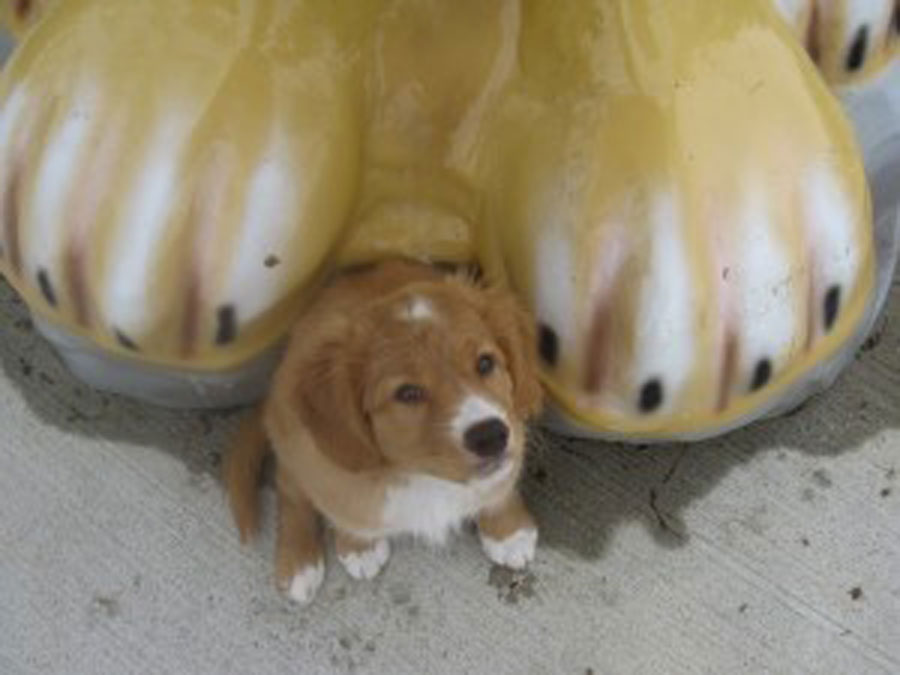Raising your puppy into a great dog depends on you.

The last couple of weeks I have been keeping busy raising my new puppy, Diva. Diva is a Nova Scotia Duck Tolling Retriever and she is almost 11 weeks old. I brought her home at 8 weeks of age and since then I have been actively engaged in giving her lots of opportunities to learn about the world around her. She is going to be my next *demo dog* so that means she has big shoes to fill!
The first 16 weeks of a puppies life are considered their socialization period. It is during this period that a pup is gathering information about how they will react to situations through out their lifetime. They are learning to react to new people, animals, noises and things with curiosity, fear or indifference. Genetics certainly play a part in behavior but your role in raising the pup is of utmost importance. You can do a tremendous amount at this young age to set the stage so that the pup turns into a confident and well mannered dog.
I think about this stage of puppy development similar to the way I think about setting up a new computer. If you get things installed right you have a much smoother lifetime experience with the computer. If you raise your puppy right you have a much smoother lifetime with your dog. If there are lots of mistakes during the early *installation process*….well, you pay for it down the road.
Let me share some food for thought on what you should be doing to raise your puppy into a wonderful dog:
First off, remember that the cute little fur ball will be pretty close to full grown in size and weight in less than a year. So establish rules early about what will and will not be acceptable for your dog when they reach that size. Don’t make the mistake of thinking *well, she is a baby and we will change things when she is bigger. Things like; will you allow the dog on the furniture?, is it okay to jump on and play bite people? and were do you want to dog to poop? are the questions you should answer right from the beginning. Create your rules now and stick to them.
Expose your puppy to as many people as you can. Your pup should meet men, women and children and learn to accept friendly handling and touch. Having strangers offer treats can go a long way in teaching a hesitant pup that people are friendly, not scary.
Your dog is going to need routine grooming and care for a lifetime so begin brushing, bathing and toenail trimming early. Teach your pup to hold still for these activities. You can distract your pup with a treat while you do these things but it also perfectly acceptable to simply be insistent and teach that this type of handling must be tolerated. Just because your pup whines and wiggles does not mean you should put him down and quit. If you do….well, then just be prepared for lots of whining and wiggling each time you groom your dog. 🙂
Take your pup on lots of outings. By taking your pup with you to lots of places you will automatically expose the pup to new noises, people and situations. In the two and a half weeks I have had Diva she has been to the car wash, a few parks, the pet store, the auto mechanics, the ice cream place, several friends homes, the Veterinarian, a hike in the woods and she even road in a cart through the outdoor garden department when I was shopping for my annual flowers.
Start teaching your pup to walk on a leash and begin luring them to sit and lay down. This early shaping of behavior can make your obedience classes easier when you enroll in a few months.
You should also expose your pup to well socialized dogs and other puppies. This can be accomplished through enrollment in a puppy socialization class. A good class will expose your pup to supervised play with other puppies and will teach you the basics of how to raise a well mannered companion.
Have fun and take lots of pictures. It will only be a few short months and the little bundle of fur will quickly grow in size and behavior.

